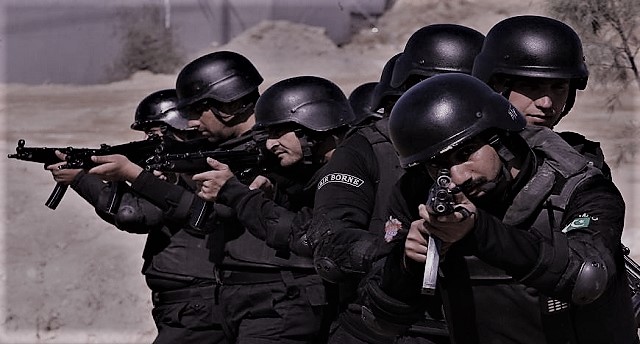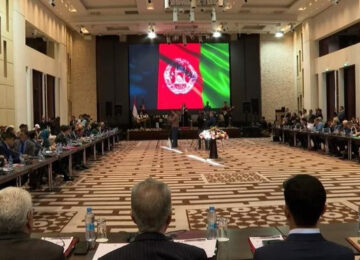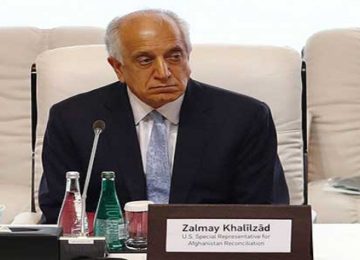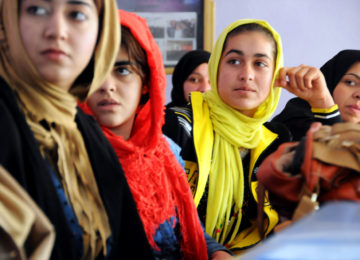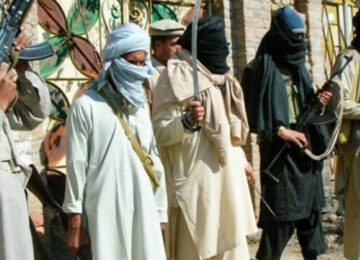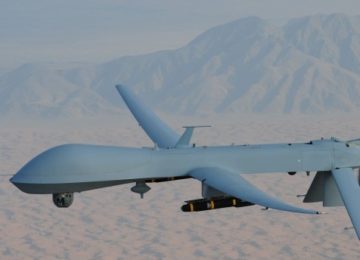December 06, 2017
On 14 February 2019, an explosives-laden car rammed into a convey of Central Reserve Police Force (CRPF) in Pulwama district of Indian controlled Jammu and Kashmir, killing at least 37 personnel. India, following its tradition, accused Pakistan and launched an airstrike on Balakot district of Khyber Pakhtunkhwa (KPK). In response, Pakistan shot down the Indian plane and arrested its fighter pilot Abhinandan. However, in an unexpected, yet welcome, turn of events, Pakistan gracefully repatriated the pilot within days of his arrest in an attempt to bring India to the negotiating table.
The Pulwama saga marked the beginning of 2019 with increased tensions between the two archrivals India and Pakistan. Soon after the attack, India also named Jaish-e-Mohammed (JeM) for the group’s alleged involvement in the Pulwama attack. India sent Pakistan a dossier naming the individuals it claimed were involved in the attacks.
Pakistan immediately took action and detained around 44 militants, all of whom were named in the dossier (excluding Masood Azhar). However, as India failed to provide any tangible evidence of their involvement, all 44 militants were later released.
Other than managing the tensions with India, Pakistan has been working towards clipping the wings of militant organizations, particularly Jaish e Muhammad (JeM) and Jamaat-ud-Dawa (JuD) for two reasons; to safeguard its own interests and reassure international stakeholders such – as Financial Action Task Force (FATF) – and to avoid economic sanctions.
With this as the backdrop, Pakistan has taken some key steps in 2019 to counter terrorism and satisfy international stakeholders.
1 – Distancing from JuD and JeM:
Pakistan remained accused of harbouring and supporting militant organizations particularly the JuD and JeM. Both militant groups were also alleged to have the state’s backing. The JuD was accused of orchestrating the infamous 2008 Mumbai attacks among others. Likewise, JeM was accused of attacks like Pulwama.
JeM was banned in Pakistan on 14 January 2002, however, it kept working under the radar. Conversely, JuD and its affiliated Falah-i-Insaniat Foundation (FIF) remained active despite accusations of terror activities until 2019, when they were finally banned.
On 5 March 2019, the National Counter Terrorism Authority (NACTA), following the notification of the Interior Ministry, formally declared JuD and FIF as defunct. Following the orders, a countrywide campaign was launched against the two main organizations and 700 of their assets, worth billions of rupees, were seized across the country.
It is also worth noting that during this time, JuD and JeM’s secret training camps in KPK were also abandoned. The security forces placed strict vigilance and monitoring in the areas of the camps to ensure they remain closed.
2 -Arrest of Hafiz Saeed and Mufti Abdul Rauf in terrorism cases:
The year 2019 witnessed two notable arrests. However, where one denotes serious government action, the other was merely cosmetic step – aimed at neutralizing international pressure.
Hafiz Saeed, the Emir of JuD, was accused of a number of terrorism cases including Mumbai attacks, inside India. The United States of America had also declared him as a global terrorist and set a bounty of 10 million dollars for bringing him to justice.
Yet, he was never arrested by Pakistan on any serious charges. Pakistan remained of the opinion that no tangible proof had ever been produced by either India or the USA against Saeed. In earlier years, Saeed had been detained at his residence in Lahore several times, mostly under Section 16 of Maintenance of Public Order (PPO) Act.
In June 2019, the Counter-Terrorism Department (CTD), Punjab, registered almost 5 cases of terror financing (under Anti-Terrorism Act 1997) in different cities of Punjab against Hafiz Saeed and his second in command Abdul Rehman Makki. Both were accused of collecting funds through non-profit organizations, including Al Anfaal Trust, Dawatul Irshad Trust and Muaz Bin Jabal Trust, and using the funds for their banned terror organization JuD.
On 3 July 2019, Hafiz Saeed was arrested while travelling to Gujranwala and presented before the local Anti-Terrorism Court. He was directly sent to jail. This marked the first time that Saeed was put behind bars for any case. CTD Punjab is now pursuing his case in the court of law.
Likewise, following the Pulwama attack, 44 militants, including Abdul Raoof and Hamad Azhar, the brother and son of JeM leader Masood Azhar respectively, were taken into preventive detention for investigations. Abdul Raoof is a key leader and one of the most influential individuals in JeM. Later, all of them were released due to alleged lack of evidence.
Although the arrest of Hafiz Saeed was a serious government action, the detention of JeM leaders was nothing more than a cosmetic step taken with the aim of appearing to root out the terror symbols from the country.
3 – Terror Financing cases:
In the year 2019, Pakistan concentrated much on furnishing the terror financing cases on militants, where the example of Hafiz Saeed’s case has already been mentioned. In this regard special attention was given to Punjab.
In this regard, CTD Punjab during this entire year registered 170 cases of terror financing across the province. Out of these 170 cases, 170 people were also arrested.
To date, 56 convictions have been made and the remaining cases are under trial in the courts.
4 – Taking over of assets:
In order to meet the requirements of the Financial Action Task Force (FATF), Pakistan launched a countrywide campaign to take over the control of the assets of the defunct organizations. In this regard the provincial Auqaf departments and CTD’s played a key role.
In federal capital, Masjid I Quba, Madni Masjid, Ali Asghar Masjid, Madrassah Khalid Bin Waleed and Madrassah Ziaul Quran were taken into the control.
Mosques and offices of JuD in districts of Lahore, Rawalpindi, Chakwal, Gujranwala, Bahawalpur, Multan, Rajanpur, etc. were also taken under government control.
Similarly, provincial governments of Sindh, Balochistan and KPK also took over control of mosques, madrassas and offices of defunct organizations.
Even though the government took control over most of the mosques, seminaries and offices of the defunct organizations, there is not a single report to indicate if their curriculum of hate was ever changed or abolished.
5 – Civil Military Coordination:
In Pakistan, the absence of civil-military coordination due to a lack of trust between the two has always remained a challenge in the implementation of actions against terror groups operating within the country.
It was the same civil-military distrust which generated a scandal widely known as Dawn Leaks. In October 2016, the then Prime Minister Mian Nawaz Sharif headed a supposedly confidential meeting at the PM house, concerning actions against the terror groups including JuD and JeM. However, the story about the meeting was made public by Dawn newspaper. This irked the “establishment” against the then elected government, leading to the formation of a Dawn Leaks Commission investigating the leakage of the news.
However, this time around, the division of civil and military leadership was not very conspicuous. Instead, the civil and military institutions responsible for countering terrorism were seen to be working closely to implement the above-mentioned actions against JuD and JeM.
Therefore, the Federal Investigation Agency (FIA) and provincial Counter Terrorism Departments (CTD) were working closely with intelligence agencies in their respective areas and exchanging relevant cases and information.
6 – Detaining the family of Al-Zawahri:
In August 2019, Al-Qaeda issued a statement accusing Pakistani security forces of detaining the wife of its chief Ayman Al-Zawahri and two other family members of the insurgent group’s “martyrs” for nearly a year. Even though the detention occurred in 2018, the story was made public in 2019. The main purpose was to show that the Pakistani state was hitting hard against Al-Qaeda.
Although detaining the family members of any individual, militant or not, can be construed as violation of human rights, this action seems to have cleared the misperception that Pakistan is going slow against the internationally declared terrorist group.
7- IS in Pakistan:
On 25 May 2019, terrorist group Islamic State (IS), or Daesh, announced launching its “operations” in Pakistan, calling it the wilayah’ (state or province) of Pakistan. The announcement came only five days after IS announced that it was establishing its ‘Wilayah of Khorasan’, in India.
Only a month after the announcement, Pakistani security forces claimed to have killed an IS or Daesh terrorist, Shukrullah, in Balochistan. It was also claimed that the alleged terrorist was behind several suicide attacks in the same province. However, other than the above-mentioned encounter, there was not a single word about the disruption of the rest of the IS structure in Pakistan.
Future of terrorism in Pakistan:
In terms of terror attacks experienced by the country in previous years, 2019 remained relatively quiet. Balochistan remained the prime target of the attacks where 5 out of total 6 major attacks were carried out. Several attacks targeted the China Pakistan Economic Corridor (CPEC), reflecting the strategic approach of the militant organizations involved in such attacks.
Actions of the government against two main militant outfits namely JuD and JeM have naturally upset their ranks and file. Hence, there is a possibility that some individuals from these militant groups may join Tehreek-e-Taliban Pakistan (TTP), which is still a major threat to the security of Pakistan.
TTP is not only involved in carrying out attacks by itself but is also known for aiding global militant groups like Al-Qaeda in orchestrating attacks inside Pakistan. If the belligerent elements of the above-mentioned defunct organizations join outfits like TTP and Al-Qaeda, there is a strong possibility of an increase in the number and scope of terror attacks in the country in the coming months. Even though the TTP leadership is based in Afghanistan, the group’s recruits understand the dynamics of Pakistan and have their tentacles sunk deep in the urban and rural areas of the country.
The actions of militant groups in 2019 reflect that they are concentrating more on CPEC infrastructures or related stakeholders in the country. However, there is a strong likelihood that in the year 2020, they might plan to attack urban centres or key infrastructure and resources of the country in a bid to show their might and attract the attention of international terror groups.
The author Azaz Syed is a senior correspondent/investigative journalist at Geo News/The News. He is also a columnist (Opinion Writer) for Daily Jang (Urdu). He has been awarded the Right to Information Champion of year 2016.
© Center for Research and Security Studies (CRSS) and Afghan Studies Center (ASC), Islamabad.



